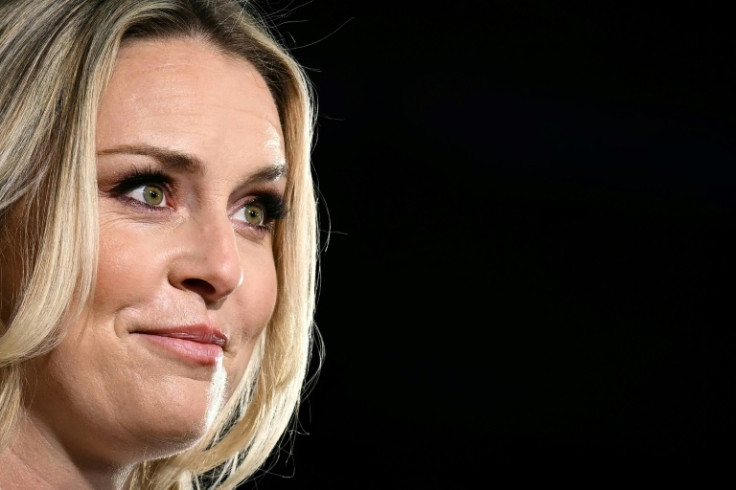
US skiing great Lindsey Vonn has welcomed plans to use artificial intelligence to shield Olympic athletes from vicious online hate, recounting how she was "wildly harassed" before the 2018 Winter Games.
AI will be used at the 2024 Paris Olympics and the Paralympics to protect competitors from abuse.
The retired Vonn, speaking to AFP at the International Olympic Committee's AI Agenda launch at London's Olympic Park on Friday, recounted her painful experiences when she was competing.
"Social media can be a very positive experience but unfortunately I've experienced the other side of it, specifically before the 2018 Olympics in Pyeongchang," she said.
"I was wildly harassed, and people were sending me death threats and that was really hard for me.
"You have enough, as an athlete trying to perform at the Olympics, than to deal with people that you know want you to ski off a cliff.
"So the fact that AI will be able to in real time take these comments down and not only that but be able to help them prosecute people, that is huge because that will, I think, change the dynamics of social media."
Vonn, 39, who won Olympic women's downhill gold at the 2010 Games in Vancouver, said she wished she had had access to the technology that will be used in Paris.
"It would have saved me a lot of anxiety and emotional trauma," she told the conference in London.
"It's part of being in the public eye and of course we have to deal with that but if there's a way to minimise that type of hate speech, that's wildly beneficial to the athletes."
Kirsty Burrows, head of the IOC's Safe Sport Unit, said she was anticipating around half a billion social media posts in Paris.
"We know that social media and sport are inextricably linked and they present such fantastic opportunities for engagement but unfortunately we also know in this digital age that online violence is something that is pervasive and it's also inescapable," she said.
Burrows said the IOC was working with a technology provider to use AI to "create and foster digitally safe environments" in Paris.
"The opportunity is available for 15,000 athletes at both the Olympic and Paralympic Games and 2,000 officials and coaches to utilise AI to capture millions of data points to be able to detect at scale, at pace in real time, targeted online abuse towards athletes and officials," she said.
The AI system will identify threats, with the aim to remove hateful content before athletes see it.
It is also integrated with safeguarding services at the Games, including mental health and wellbeing officers.
"It's the first time where this AI solution will be used to cover so many people in so many sports," said Burrows.
"I think it's really essential to better understand the prevalence of online abuse. We know it's happening but unfortunately we hear so many times people just know they have to get used to it, they have to try and ignore it but that isn't good enough when it's not fair or right... we want athletes to be able to thrive in sport."
She added: "By utilising this AI we'll also be able to better understand online violence in sport, the typologies of violence and develop data-driven policies and interventions to help create physically and psychologically safe environments for athletes."







